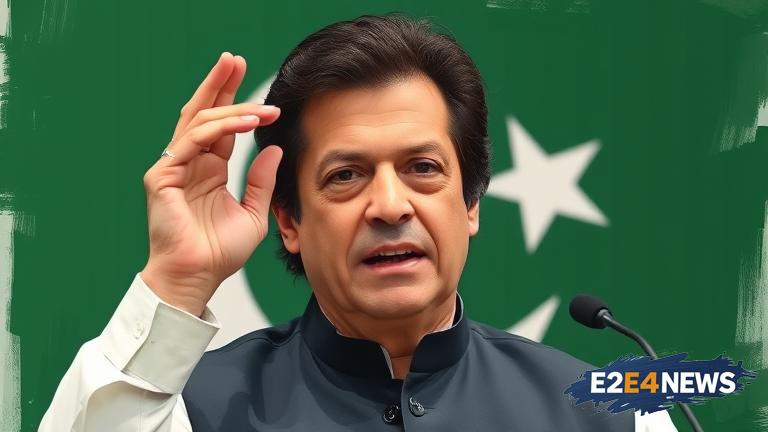Imran Khan, the former Prime Minister of Pakistan, has recently filed a petition with the country’s apex court, seeking bail relief in several ongoing cases. The move comes as Khan faces numerous legal challenges, including allegations of corruption and terrorism. The petition, filed through Khan’s legal team, argues that the former premier is being unfairly targeted by the government and that his fundamental rights are being violated. Khan’s lawyers have contended that the cases against him are politically motivated and that he is being denied a fair trial. The apex court has yet to respond to the petition, but the move is seen as a significant development in Khan’s ongoing legal battles. Khan has been facing intense scrutiny since his ouster from power in April 2022, with the government launching several investigations into his alleged wrongdoing. The former premier has denied all allegations, claiming that they are part of a larger conspiracy to discredit him and his party, the Pakistan Tehreek-e-Insaf (PTI). Despite the challenges, Khan remains a popular figure in Pakistani politics, with his party continuing to enjoy significant support across the country. The PTI has been vocal in its criticism of the government, accusing it of attempting to silence Khan and undermine his party’s influence. The ongoing legal battles have sparked widespread debate in Pakistan, with many questioning the motives behind the government’s actions. Some have argued that the cases against Khan are a clear example of political vendetta, while others believe that the former premier must be held accountable for his alleged actions. The situation has also drawn international attention, with several countries and organizations expressing concern over the state of democracy in Pakistan. The Pakistani government has maintained that it is committed to upholding the rule of law and that Khan will be treated like any other citizen. However, the opposition has accused the government of attempting to manipulate the judiciary and undermine the country’s democratic institutions. The apex court’s decision on Khan’s petition is expected to have significant implications for the former premier’s future, as well as the broader political landscape in Pakistan. If granted bail, Khan is likely to be released from custody, pending the outcome of his trials. However, if the petition is rejected, Khan could face prolonged detention, potentially damaging his political prospects. The case has also highlighted the need for judicial reform in Pakistan, with many arguing that the country’s legal system is in need of significant overhaul. The government has pledged to introduce reforms, but the opposition remains skeptical, arguing that the ruling party is more interested in consolidating its power than in addressing the country’s deeper structural issues. As the situation continues to unfold, one thing is clear: the outcome of Khan’s petition will have far-reaching consequences for Pakistan’s democracy, politics, and people. The international community will be watching closely, eager to see how the country’s institutions respond to the challenges posed by Khan’s case. The former premier’s fate remains uncertain, but his determination to clear his name and restore his reputation is unwavering. With the apex court’s decision pending, Khan’s supporters remain hopeful that their leader will be vindicated, while his opponents are eager to see him held accountable for his alleged actions. The case has sparked intense debate and discussion, with many Pakistanis taking to social media to express their opinions and concerns. As the country waits with bated breath for the apex court’s decision, one thing is clear: the future of Pakistani politics hangs in the balance, and the outcome of Khan’s petition will be a defining moment in the country’s history.





